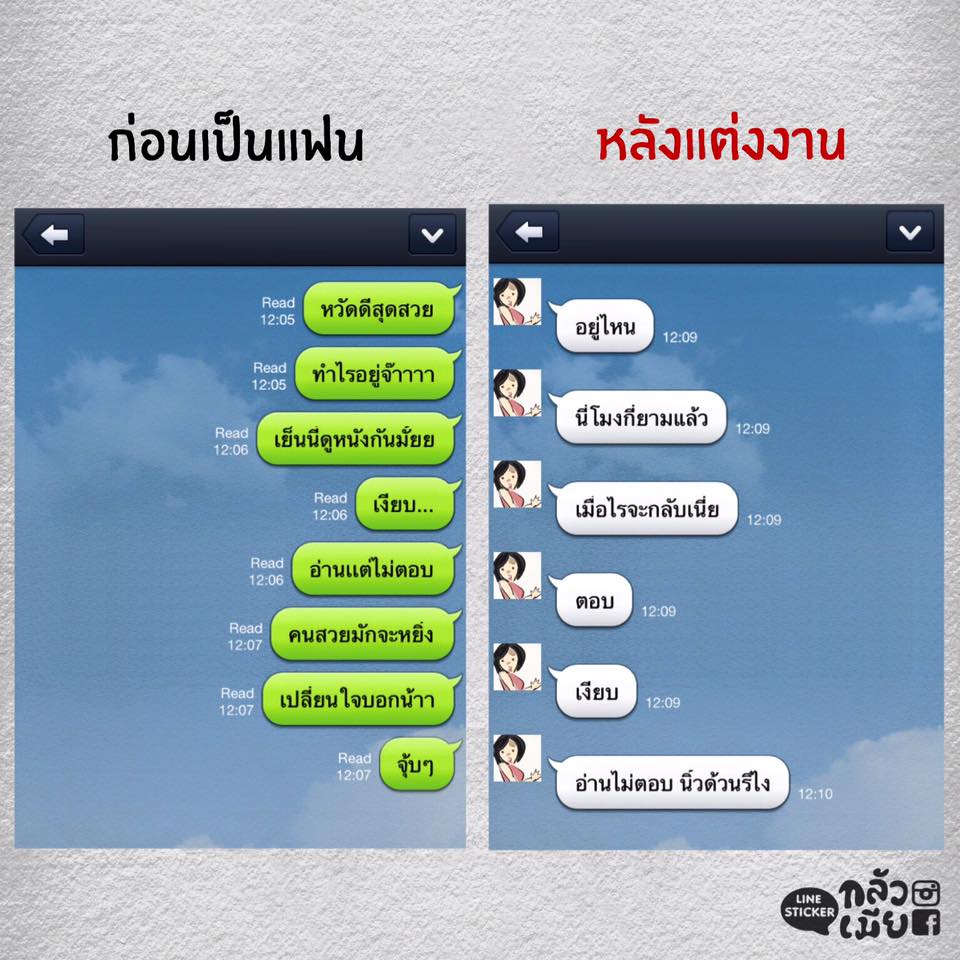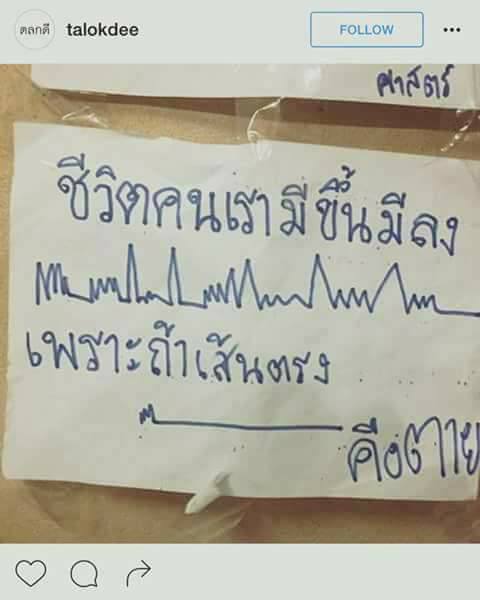PickupThai is now on Instagram and Tiktok!
Follow us at
IG: https://www.instagram.com/pickupthai/
Tiktok: https://www.tiktok.com/@pickupthai…
PickupThai is now on Instagram and Tiktok!
Follow us at
IG: https://www.instagram.com/pickupthai/
Tiktok: https://www.tiktok.com/@pickupthai…
In this video, we will answer the question “What does “ฝรั่ง (fáràng)” mean? Am I considered a “ฝรั่ง (fáràng)”?”
Thai people don’t just use “ฝรั่ง (fáràng)” to describe any foreigner. In this video, you will learn what “ฝรั่ง (fáràng)” actually means and if you can use it to describe yourself. You’ll also learn how to describe someone based on their physical features, and how to describe their ethnicity precisely when you have the information.…
Continue reading Q3: What does farang (ฝรั่ง) mean? Am I considered a farang (ฝรั่ง)?

มดลูก [mót lûuk] uterus, womb
ปีกมดลูก [pìik mót lûuk] fallopian tube
ผนังมดลูก [panǎng mót lûuk] uterus wall
ปากมดลูก [pàak mót lûuk] cervix
เชิงกราน [cherng graan] pelvis
รังไข่ [rang kài] ovary
ช่องคลอด [châwng klàwt] birth canal
ประจำเดือน [prajam deuan] period / menstrual period
เมนส์ (informal) [men] period
รอบเดือน [râwp deuan] menstrual cycle
ประจำเดือนไม่มา [prajam deuan mâi maa]
to have a missed period
ประจำเดือนมาสม่ำเสมอ
[prajam deuan maa samàm saměr]
to have regular periods
ประจำเดือนมาไม่สม่ำเสมอ
[prajam deuan maa mâi samàm saměr]
to have irregular periods
กางเกงใน [gaang geeng nai] underwear
ผ้าอนามัย [pâa anamai] sanitary napkin
ผ้าอนามัยแบบสอด [pâa anamai bàep sàwt] tampon
วางแผนมีลูก [waang pǎen mii lûuk] to plan to have a baby
พยายามมีลูก [payaayaam mii lûuk] to try to conceive
ป้องกัน [pâwng gan] to prevent, to use birth control
ปล่อยท้อง [plòi táwng] to not prevent, to not use birth control
คุมกำเนิด [kum gamnèrd] to use birth control, to be on the pill
ยาคุมกำเนิด [yaa kum gamnèrd] birth control pill
ถุงยางอนามัย [tǔng yaang anamai] condom
ห่วงยางคุมกำเนิด [hûang yaang kum gamnèrd]
IUD (intrauterine contraceptive device)
ตั้งใจมี (a baby) [tângjai mii] to be planned
ไม่ตั้งใจมี (a baby) [mâi tângjai mii] to be unplanned
พลาด (a baby) [plâat] from an accident
ท้องไม่พร้อม [táwng mâi próm] to be pregnant when not ready
ท้องก่อนวัยอันควร [táwng gàwn wai ankuan]
to be pregnant as a teenager
ท้องก่อนแต่ง [táwng gàwn tàeng]
to be pregnant before marriage
ท้องไม่มีพ่อ [táwng mâimii pâw] to be pregnant without a partner
ท้องโดยไม่ตั้งใจ [táwng dooi mâi tângjai]
to have an unplanned pregnancy
พลาดท้อง [plàat táwng] to be pregnant from failed birth control
อสุจิ [asujì] sperm
มีเพศสัมพันธ์ [mii pêet sǎmpan] to have sex
 มีเซกส์ [mii sex] (informal) to have sex
มีเซกส์ [mii sex] (informal) to have sex
ปฏิสนธิ [patì sǒntí] to be conceived
การปฏิสนธิ [gaan patì sǒntí] conception
ฝังตัว [fǎng tua] to implant
การฝังตัว [gaan fǎng tua] implantation
เลือดล้างหน้าเด็ก [leûat láang nâa dèk]
implantation bleeding
ไข่ [kài] egg
ไข่ตก [kài tòk] to ovulate
วันไข่ตก [wan kài tòk] ovulation date
นับวันไข่ตก [náp wan kài tòk] to calculate ovulation date
…วันหลังไข่ตก [wan lǎng kài tòk] DPO (day(s) past ovulation)
วันแรกของประจำเดือนครั้งสุดท้าย [wan râek kǎwng prajam deuan kráng sùt táai]
LMP (date of the first day of the last menstrual period)
พยายามมีลูก [payayaam mii lûuk] to try for a baby, to try to conceive
(วัน)กำหนดคลอด [wan gamnòt klâwt] EDD (estimated due date)
ตกขาว [tòk kǎao] cervical mucus
อุณหภูมิร่างกาย [unhapum râang gaai] basal body temperature
ท้อง [táwng] pregnant/to be pragnant
ตั้งครรภ์ [tâng kan] to be pregnant/to be carrying a baby
การตั้งครรภ์ [gaan tâng kan] pregnancy
คนท้อง [kon táwng] pregnant woman
แม่ท้อง [mâe táwng] expectant mother
แม่มือใหม่ [mâe meu mài] a new mother
ความเป็นแม่ [kwaam pen mâe] maternity motherhood
สองขีด [sǎwng kìit] two lines
ที่ตรวจการตั้งครรภ์ [tîi dtrùat gaan táng kan] pregnancy test
ระดับฮอร์โมน [radàp hormone] hormone level
ตรวจเจอ [dtrùat jer] to test positive
ท้องแล้ว [táwng láew] I’m pregnant!…
In this video, we will answer the question “When do Thais wai? Who should I and should I not wai?”
You will learn about the very important Thai gesture, “wai,” which is used in greeting and several other occasions. After watching the video, you will have a clear understanding of how, when and who to wai, and be able to use it correctly like the local people.…
Continue reading Q2: When do Thais wai”? Who should I and should I not wai?In this video, we will answer the question “Do Thais really say สวัสดี [sawàtdii] and สบายดีไหม [sabaaidiimai]?” You will learn the correct times to use the expression “สวัสดี [sawàtdii],” as well as a more informal expression that Thai people commonly use but which you may have never heard — หวัดดี [wàtdii].”…
Continue reading Q1: Do Thais really say สวัสดี (sawàtdii) and สบายดีไหม (sabaaidiimai)?
In this lesson, khru Miki Chidchaya, teaches some of the most useful phrases for travelers to use on their trip to Thailand. The topics include greeting, how to thank and apologize, how to ask prices and directions and how to order food. Knowing these phrases will help make your life easier and your trip more enjoyable as you’ll be able to communicate your needs as a tourist with the locals.…
Continue reading Top 10 Thai Phrases for TravelersIn this lesson, khru Yuki Tachaya talks about many different contexts where the word “for” can be used in English and how to express it in Thai for each context. As there is no word-to-word translation for the word “for,” not only will you have a better understanding of when to use “เพื่อ” (pêua) and when to use “สำหรับ (sǎmràp),” but you will also learn other ways to express “for,” which you may have never known before.…
Continue reading How to Say “For” : เพื่อ Pêua / สำหรับ Sǎmràp / ให้ Hâi / เอาไว้ Ao wái1. นี่คือสิ่งที่หลายคนเป็นในที่ทำงาน
[nîi keu sìng tîi lǎai kon pen nai tîi tamngaan]
This is what a lot of people do at work.

2. ไปทำงานวันแรก VS ปัจจุบัน
[pai tam ngaan wan râek VS pàtjuban]
Going to work on my first day VS now

3. เมื่อลูกค้าของคุณต้องการคุยกับผู้จัดการ แล้วผู้จัดการก็บอกสิ่งเดียวกับที่คุณเพิ่งบอกไป
[mêua lûuk káa kǎwng khun tâwng gaan kui gàp pûujàtgaan léaw pûujàtgaan gâw bàwk sìng diao gàp tîi khun pêung bàwk pai]
When a customer wants to speak to the manager and the manager just tells them the exact same thing you did.…
The expression “If I had known, (I would..)” in English can be expressed using the phrase “(ถ้า)รู้อย่างนี้ [tâa rúu yàang níi].” “ถ้า [tâa]” means “if” and can be omitted, “รู้ [rúu]” means “to know,” and “อย่างนี้ [yàang níi]” literally means “like this.”
Examples
(ถ้า)รู้อย่างนี้ ไม่มาแน่นอน
[(tâa) rúu yàang níi, mâi maa nâe nawn]
If I had known, I wouldn’t have come.…
 บางคนก็ทำตัวเหมือนว่าเขาพยายามจะช่วยคุณ
บางคนก็ทำตัวเหมือนว่าเขาพยายามจะช่วยคุณ
[baang kon gâw tam tua měuan wâa káo payaayaam ja chûai khun]
Some people act as if they were trying to help you.
[ – – – V o c a b u l a r y – – – ]
บางคน [baang kon] some people
ทำตัว [tam tua] to act, to behave
เหมือนว่า [měuan wâa] like, as if
พยายาม [payaayaam] to try
ช่วย [chûai] to help
[ – – – G r a m m a r – – – ]
Noun + บาง [baang] + (specific) classifier (for that noun) = Some …….…
Continue reading The Hidden LadderIn Thai, we use the word “มาก [mâak]” after an adjective to intensify it. For example, we say “สวยมาก [sǔai mâak]” for “very beautiful” and “ใหญ่มาก [mâak]” for “very big.” While it’s extremely useful and easy to use, it can get boring to use just this one word for every adjective.…
Continue reading Special Intensifiers ก่อนมีผัว [gàwn mii pǔa] Before having a husband
ก่อนมีผัว [gàwn mii pǔa] Before having a husband
หลังมีผัว [lǎng mii pǔa] After having a husband
 ก่อนคลอด [gàwn klâwt] Before birth
ก่อนคลอด [gàwn klâwt] Before birth
หลังคลอด [lǎng klâwt] After birth
 ก่อนเป็นแฟน [gàwn pen fan] Before we started dating
ก่อนเป็นแฟน [gàwn pen fan] Before we started dating
หวัดดี สุดสวย [wàddii sùdsǔai] Hello, Beautiful.
ทำอะไรอยู่จ๊าาา [tam arai yùu jáaaaa] What are you doing?
เย็นนี้ดูหนังกันมั้ยยย [yenníi duu nǎng gan máiiii] Wanna go watch a movie with me tonight?…

ชีวิตคนเรามีขึ้นมีลง
[chiiwít kon rao mii kêun mii long]
Life has ups and downs.
เพราะถ้าเส้นตรงคือตาย
[práw tâa sên trong keu taai]
Because if it’s linear, it means you’re dead.
[ – – – V o c a b u l a r y – – – ]
ชีวิต [chiiwít] life
คนเรา [konrao] we people
ขึ้น [kêun] up
ลง [long] down
เพราะ [práw] because
ถ้า [tâa] if
เส้น [sên] line
ตรง [trong] straight
คือ [keu] verb to be
ตาย [taai] to die, to be dead
Related post: Video lesson “The Thai Verbs to Be”
…
Continue reading Part of Life 10 สิ่งที่จะแก้เครียดเราได้ดี
10 สิ่งที่จะแก้เครียดเราได้ดี
[sìp sìng tîi ja gâe krîat rao dâai dii]
10 Things to Effectively Relieve Your Stress
1 ปิ้งย่าง [pîng yâang] (Korean) barbeque
2 ชาบู [chaa buu] shabu (Japanese hot pot)
3 ชาเขียว [chaa kǐao] green tea
4 อาหารทะเล [aa hǎan talay] seafood
5 แซลมอน [saew mâwn] salmon
6 ส้มตำ [sôm tam] Thai papaya salad
7 บิงซู [bing suu] bingsu (Korean shaved ice dessert)
8 เค้ก [cake] cake
9 ช้อปปิ้ง [shoppping] shopping
10 และมีเงินโอนเข้าบัญชี 10 ล้าน [láe mii ngern oan kâo banchii sìp láan]
And 10 million baht transferred to my bank account
[ – – – V o c a b u l a r y – – – ]
สิ่ง [sìng] thing
แก้ [gâe] to relieve, to repair
เครียด [krîat] stress, to be stressed
เรา [rao] we, us
ปิ้ง [pîng] to toast
ย่าง [yâang] to grill
อาหาร [aahǎan] food
ทะเล [talay] sea
เงิน [ngern] money
โอน [oan] to transfer
เข้า [kâo] into
บัญชี [banchii] bank account
…
Continue reading 10 Stress Relieversอดเปรี้ยวไว้กินหวาน [òd prîao wái gin wǎan] is a Thai proverb that is used to teach or encourage delayed gratification, which is the act of resisting an impulse to take an immediately available reward in order to obtain a more valued one in the future. It’s usually said to someone to encourage them to not take what they want now and wait for what they want more in the future.…
Continue reading อดเปรี้ยวไว้กินหวาน “òd prîao wái gin wǎan”